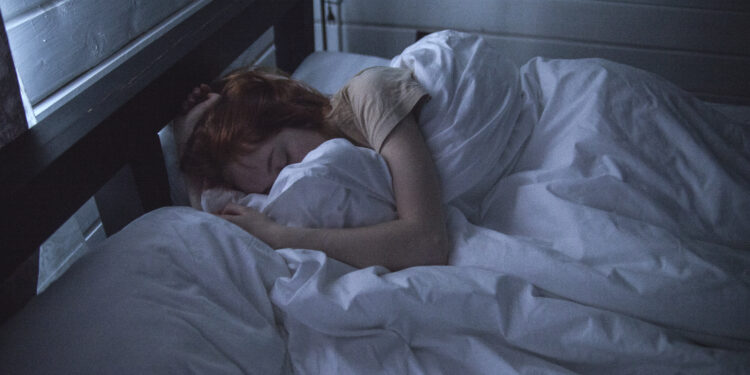Do you find yourself tossing and turning at night, unable to get a good night’s sleep? If so, you might be one of the millions of people suffering from sleep apnea. This condition can have a significant impact on your quality of life, leaving you feeling tired, irritable, and unable to focus during the day.
But don’t worry, there are solutions available to help you get the restful sleep you deserve. In this article, we’ll cover the top 5 sleep apnea solutions to help you say goodbye to restless nights. From lifestyle changes to medical treatments, we’ve got you covered with options that can help you breathe easier and sleep more soundly. So, sit back, relax, and let’s explore the best ways to tackle sleep apnea and get the restful sleep you deserve.
Symptoms of Sleep Apnea
Sleep apnea is a condition that affects the way you breathe while you sleep. It causes you to stop breathing for short periods of time, which can lead to a variety of symptoms.
Some of the most common symptoms of sleep apnea include loud snoring, gasping for air during sleep, waking up with a dry mouth or sore throat, and feeling tired during the day. If you experience any of these symptoms, it’s important to talk to your doctor about getting a diagnosis.
Risks Associated with Sleep Apnea
Central sleep apnea is more than just a nuisance that keeps you up at night. It can also have serious health consequences if left untreated. Some of the most common risks associated with sleep apnea include high blood pressure, heart disease, stroke, and diabetes. It can also make it more difficult to lose weight since your body is not getting the rest it needs to function properly.
Diagnosis of Sleep Apnea
If you suspect that you may be suffering from sleep apnea, the first step is to talk to your doctor. They will likely recommend a sleep study to determine the severity of your condition. During a sleep study, you will stay overnight in a sleep lab where your breathing and other vital signs will be monitored. Based on the results of your sleep study, your doctor will be able to determine the best course of treatment for you.
Common Sleep Apnea Treatments
There are a variety of treatments available for sleep apnea, depending on the severity of your condition. Some of the most common treatments include continuous positive airway pressure (CPAP) therapy, dental appliances, and surgery. In addition, making lifestyle changes such as losing weight, quitting smoking, and avoiding alcohol and sedatives can also help improve your sleep apnea symptoms.
Top 5 Sleep Apnea Solutions
1. Continuous Positive Airway Pressure (CPAP) Therapy
CPAP therapy is one of the most effective treatments for sleep apnea. It involves wearing a mask over your nose and mouth while you sleep, which delivers a constant flow of air to keep your airway open. While CPAP therapy can take some getting used to, most people find that it significantly improves their sleep apnea symptoms.
2. Dental Appliances for Sleep Apnea
Dental appliances can also be effective in treating sleep apnea. These devices are custom-made by a dentist and are designed to keep your airway open while you sleep. They work by repositioning your jaw or tongue to prevent your airway from becoming blocked.
3. Surgery for Sleep Apnea
In some cases, surgery may be necessary to treat sleep apnea. This is typically reserved for severe cases that are not responding to other treatments. There are several different types of surgery that can be used to treat sleep apnea, including uvulopalatopharyngoplasty (UPPP), maxillomandibular advancement (MMA), and tracheostomy.
4. Lifestyle Changes to Improve Sleep Apnea
In addition to medical treatments, there are a number of lifestyle changes you can make to improve your sleep apnea symptoms. Losing weight, quitting smoking, and avoiding alcohol and sedatives can all help improve your sleep quality. In addition, practicing good sleep hygiene, such as sticking to a regular sleep schedule and creating a relaxing bedtime routine, can also help improve your sleep apnea symptoms.
5. Positional Therapy
Positional therapy involves changing the position in which you sleep to help prevent your airway from becoming blocked. This can involve using a special pillow or sleeping on your side instead of your back. While positional therapy may not work for everyone, it can be an effective solution for some people with mild to moderate sleep apnea.
Conclusion
Sleep apnea is a common condition that can significantly impact your quality of life. But with the right treatment, you can say goodbye to restless nights and wake up feeling refreshed and energized. Whether you opt for CPAP therapy, or dental appliances, or make lifestyle changes to improve your sleep apnea symptoms, there are plenty of solutions available to help you get the restful sleep you deserve. So, talk to your doctor about your options and take the first step towards a better night’s sleep.























